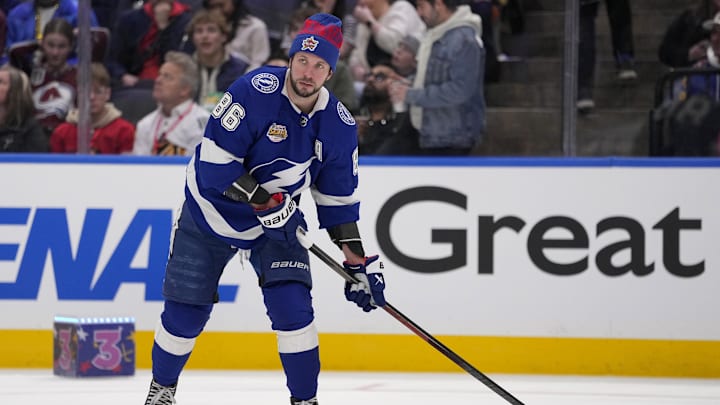Since February 12th of this year, when the start of the 4 Nations Tournament got underway, the NHL set the gold standard by replacing it with the league's annual All-Star game. The NHL's decision to implement a best-on-best tournament like the 4 Nations Tournament was undoubtedly better than having a ninth straight All-Star game.
International tournaments bring that authentic compete level from players, because of their high-stakes players want to represent their country to the best of their ability, something All-Star games just can't provide.
The last best-on-best tournament was The World Cup of Hockey back in 2016, which was a better tournament than what the 4 Nations is, at least structurally.
The 4 Nations Tournament only includes countries Sweden, Finland, Canada, and the U.S.. At the same time, the World Cup of Hockey had eight teams in total, with Finland, Sweden, Canada, the U.S., Russia, Czechia, Team North America, and Team Europe.
The 4 Nations Face-Off Should Replace the All-Star Game Permanently
Nevertheless, the NHL should continue with a best-on-best tournament, replacing their All-Star game, where we have players like Tampa Bay Lightning forward Nikita Kucherov notoriously showing his dislike in the skills competition.
If you've tuned into any 4 Nations Tournament game in the past week. You notice right away that the compete level from players in this tournament is significantly higher than any All-Star game in recent memory, and that's just a fact.
Name one All-Star game where players got into three fights within the first nine seconds of a game; this happened in a round-robin game between Canada and the USA. Not to mention, these are some of the best players in the world who are vital for their NHL teams' success.
These players care, why else would Stanely Cup Champions Matthew Tkachuck, Sam Bennett, and Colton Parayko fight in a round-robin game, mid-season nevertheless?
Are there consequences of playing with so much pride? Sure, after Tkachuck's opening fight with Brandon Hagel, he was limited to 11:10 minutes of ice time, which was down 6:37 ice time he had in the USA's first game of the tournament against Finland. Tkachuk missed the U.S.'s last round-robin game against Sweden to hopefully return for the final against Canada.
The Fans Love It, and The Ratings Prove It
For the Canada-U.S. game, ESPN's broadcast averaged 4.4 million viewers, and you could expect SportsNet to have similar numbers. The opening games for Canada and the U.S. had ratings topping 4.1 and 3.4 million viewers. If you're wondering how All-Star games match up in ratings, the most viewed All-Star game since 2015 was in 2017 with 2.2 million viewers.
The 4 Nations Tournament is just the start for some incoming international best-on-best hockey. That's right, after nine years of no best-on-best hockey, fans will be able to tune into the world's best players participating in the Olympic Winter Games in 2026 and 2030, and just last week, the NHLPA and NHL announced the return of the World Cup of Hockey in 2028.
For nine years, hockey fans were deprived of best-on-best hockey with lackluster effort and play for underwhelming All-Star games. International play is back, at least for the foreseeable future; with players invested, it could set a new expectation for mid-season events.
The NHL has set the gold standard by having an in-season tournament like the 4 Nations Tournament, and other leagues should follow suit.
